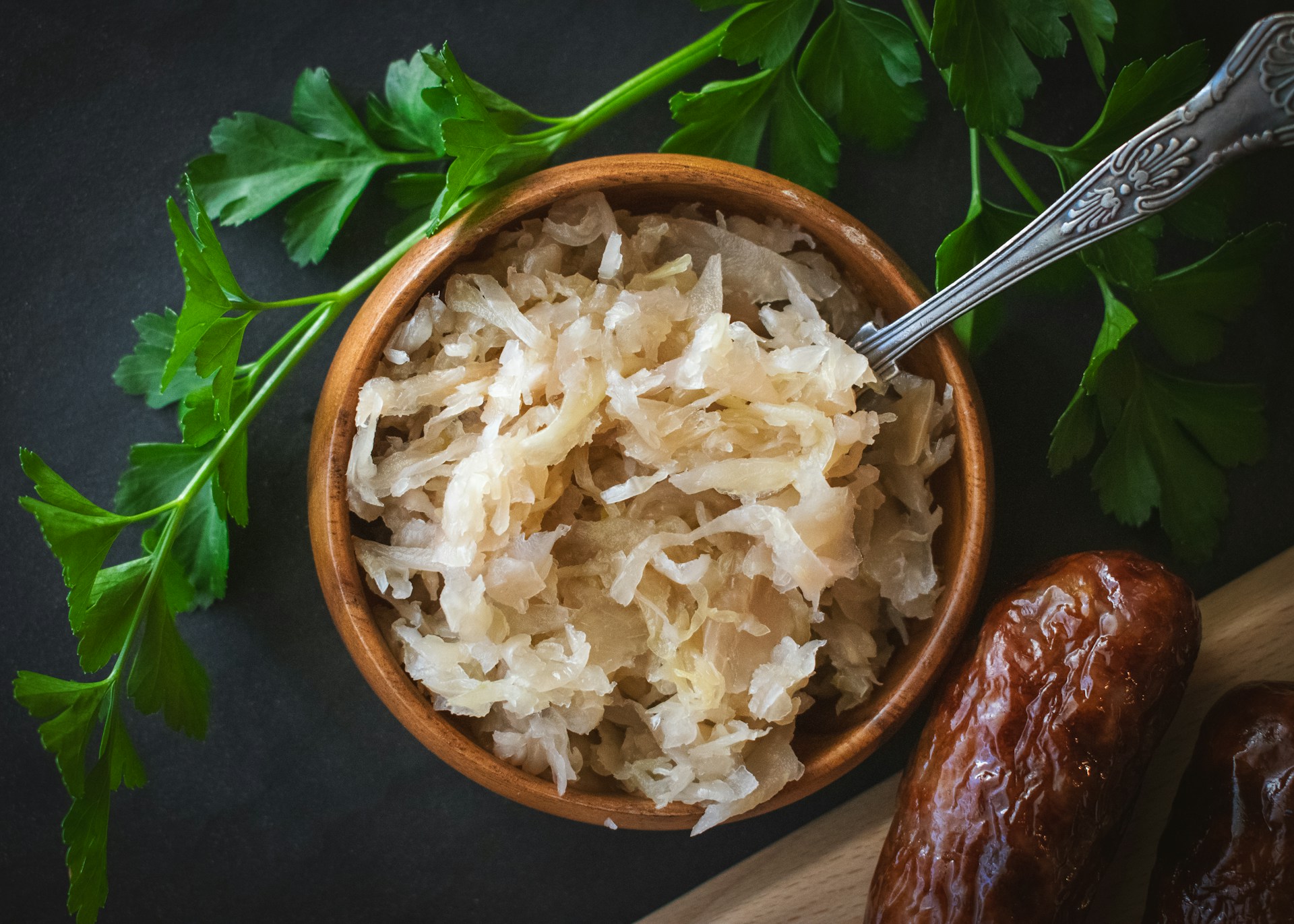Nutrition
Discover the Surprising Gut Health Benefits of This Favorite Topping

Hot dogs often get a bad rap, and for good reason. Like many processed meats, they are loaded with harmful ingredients, saturated fats, and sodium. However, one common topping for these popular snacks might actually be doing your gut some good. Recent research highlights the potential health benefits of sauerkraut, particularly its positive effects on gut health.
A study published in the journal *Applied and Environmental Microbiology* delved into the anti-inflammatory properties of sauerkraut. Researchers compared the metabolites found in raw cabbage with those in both store-bought and lab-made sauerkraut to examine how fermentation impacts the food. The findings were promising, revealing that sauerkraut could help protect intestinal cells from inflammation-related damage.
“They found that sauerkraut helped maintain the integrity of intestinal cells, while raw cabbage and brine did not.”
The secret lies in the fermentation process, which enhances the metabolites in cabbage, including lactic acid and amino acids. These compounds are known to boost gut health by introducing beneficial bacteria, such as probiotics, into the digestive system.
“Some of the metabolites we find in the sauerkraut are the same kind of metabolites we’re finding to be made by the gut microbiome,” explained Maria Marco, a professor in the Department of Food Science and Technology at the University of California, Davis.
“It doesn’t matter, in a way, if we make sauerkraut at home or we buy it from the store; both kinds of sauerkraut seemed to protect gut function.”
While the study’s results are promising, the next step involves conducting human trials to confirm sauerkraut’s gut-protective effects in people. In the meantime, Marco suggests incorporating sauerkraut into a balanced diet could be beneficial.
“Along with eating more fiber and fresh fruits and vegetables, even if we have just a regular serving of sauerkraut, maybe putting these things more into our diet, we’ll find that can help us in the long run against inflammation, for example, and make our digestive tract more resilient when we have a disturbance,” she shared.
“A little bit of sauerkraut could go a long way,” she concluded. “We should be thinking about including these fermented foods in our regular diets and not just as a side on our hot dogs.”
Sauerkraut is not alone in its gut-friendly reputation. Other fermented foods like kefir, kimchi, kombucha, miso, tempeh, and yogurt have also been shown to improve digestive health. For instance, kefir, a fermented dairy product, is packed with probiotics that alleviate symptoms of various gastrointestinal issues.
“Kefir is a powerhouse for gut health, thanks to its rich content of probiotics—those friendly bacteria that keep your digestive system running smoothly,” nutritionist Bharathi Ramesh noted. “Unlike yogurt, kefir typically contains a wider range of strains, which can have a more comprehensive impact on your gut microbiome.”
Kimchi, another fermented delight, is well-regarded for its ability to suppress inflammation related to obesity, as demonstrated in a 2022 study.
Incorporating these fermented foods into your diet could potentially offer a range of health benefits, particularly for your gut. Whether enjoyed as a topping or a standalone dish, these foods might just be the key to a healthier digestive system.
Let us know what you think, please share your thoughts in the comments below.
